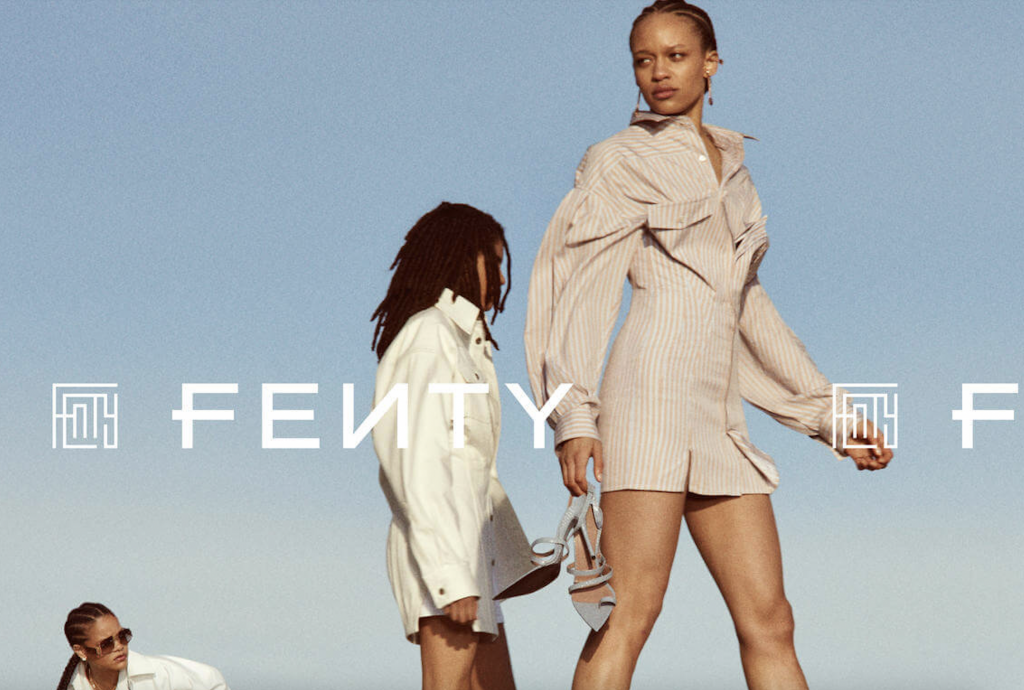Launching a luxury label is no easy feat, and attempting to do so (unknowingly) just ahead of the onset of the COVID-19 pandemic is an even more arduous task, one that has not proven fruitful even for LVMH Moët Hennessy Louis Vuitton and mega-star Rihanna. The Paris-based luxury goods group revealed on Wednesday that it will shutter its joint venture with Rihanna, at least for the time being, telling WWD, “Rihanna and LVMH have jointly made the decision to put on hold the ready-to-wear activity, pending better conditions.” The announcement comes less than two years after LVMH confirmed growing chatter that it had partnered with the multi-Grammy Award winner and beauty mogul for a luxury-level fashion collection.
The parties are not going their separate ways, though. L Catterton – the LVMH-affiliated private equity firm with stakes in companies like Ganni, Everlane, Giuseppe Zanotti, Third Love, Honest Company, and Equinox, among others – led a recent Series B fundraising round for Savage x Fenty, the 3-year old lingerie label that Rihanna maintains with TechStyle Fashion Group. “Following the completion of a fundraising round where L Catterton has taken a stake into Savage X Fenty, LVMH and Rihanna reaffirm their ambition to concentrate on the growth and the long-term development of Fenty ecosystem focusing on cosmetics, skincare and lingerie,” LVMH and Rihanna stated.
At the same time, LVMH and Rihanna are keeping their Fenty Beauty venture intact, which Rihanna launched with Kendo, LVMH’s incubator for new beauty brands, in September 2017, as well as the subsequently-launched Fenty Skin.
To date, LVMH had failed to make any mention of its ready-to-wear venture with Rihanna in any of its revenue reports, raising questions about the progress of the ambitious tie-up. However, on the heels of reports that LVMH had enlisted former Nike executive Bastien Renard to join its newest fashion brand, LVMH chief financial officer Jean-Jacque Guiony shed some light on the status of the growing fashion brand, saying in October that Fenty was still “work-in-progress.” All the while, LVMH has frequency touted the “exceptional success” of its more than 3-year-old beauty brand with Rihanna, noting in its annual report last month , for instance, that “the new skincare brand Fenty Skin, developed by Rihanna, is off to a very promising start.”
Prior to LVMH’s confirmation of the launch of the Fenty label in May 2019, rumors had been swirling that LVMH and Rihanna were set to expand their partnership beyond her hot-selling Fenty Beauty, which is a joint venture with LVMH, to include a full-fledged fashion line, with the luxury goods group and the multi-hyphenate Grammy winner having engaged in “secret discussions to launch a luxury house under her name” since early that year. In launching the collection, Rihanna became “the first woman to create an original brand at LVMH [and] the first woman of color at the top of an LVMH maison,” the New York Times’ Vanessa Friedman reported at the time.
As for Savage x Fenty, which is a joint venture between Rihanna and Techstyle, the retail group that owns Kate Hudson’s Fabletics and ShoeDazzle, the latest funding rounding comes after the brand raised a reported $50 million in funding in August 2019, which “brought the total amount invested in the company to roughly $70 million,” according to the Wall Street Journal. Thanks to its modern offerings, including a wide range of sizes, the Savage venture has been touted as readily stealing market share from established names like Victoria’s Secret, helping it to bring it sales that, as of 2019, were approaching $150 million and growing.
The new funding will go towards Savage’s next phase of growth in light of an “explosive” rise in revenue over the past year, per LVMH.
LVMH and Rihanna’s Fenty venture, which was slated to “disrupt” the luxury space by way of its regular drops as opposed to adhering to the seasonal approach to fashion, is seemingly a testament to the difficulty that comes with launching a label from scratch, as opposed to acquiring an established name, the latter of which is far more within the wheelhouse of LVMH. As the Times’ stated in connection with its launch in 2019, Fenty was “the first new house created by [LVMH] since Christian Lacroix in 1987,” with LVMH selling off the seemingly underperforming Lacroix label in 2005 in furtherance of what it called its “strategy of focusing on those leading brands with the highest growth potential.”
Instead of founding new brands, LVMH has captured the title of the world’s largest luxury goods group by aggressively acquiring luxury names, dating back to 1984 when LVMH chairman Bernard Arnault purchased Boussac in a quest to get his hands on Christian Dior, which was owned by the ailing textile company. The outlier here appears to be Rihanna’s Fenty Beauty (and maybe the newly-launched Fenty Skincare brand). The brands and their well-priced and effectively-targeted products have flourished, likely due to enduring demand for cosmetics – as opposed to apparel – in light of the pandemic, as well as the more accessible nature of cosmetics, which has likely helped the Fenty brands find favor among younger consumers that are not yet ready to shell out on pricey luxury goods.













